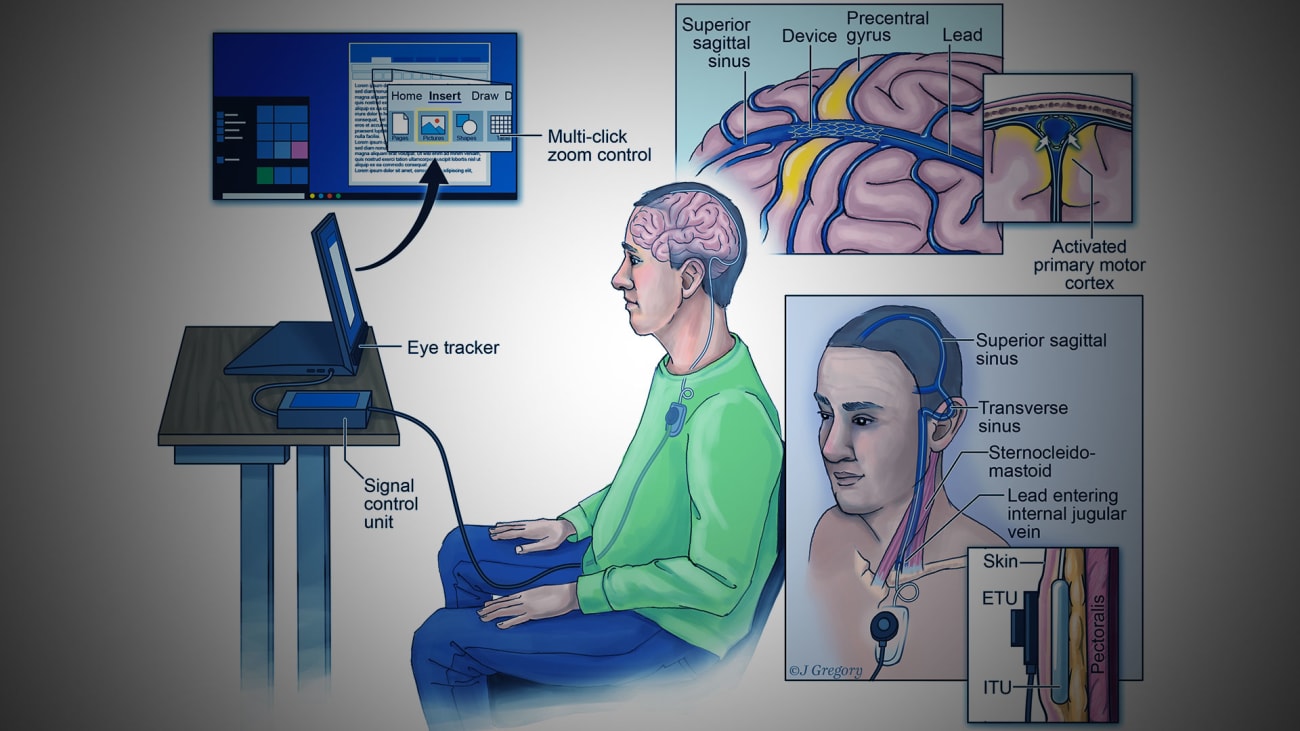Mount Sinai Receives $2.9 Million To Study First-of-Its-Kind Brain Implant for Restoring Function in Paralyzed Patients
- Research is part of $10 million National Institutes of Health (NIH) grant to fund multicenter clinical trial
- Device is a small brain-computer interface (BCI) implanted through blood vessels in the brain
- Study subjects include patients with severe paralysis caused by stroke, injury, or late-stage amyotrophic lateral sclerosis
Mount Sinai’s Department of Rehabilitation and Human Performance will lead the study, working closely with the Department of Neurosurgery. The first implantation in the United States of the Stentrode device, developed by Synchron, Inc., is expected to take place at Mount Sinai in the coming months.

